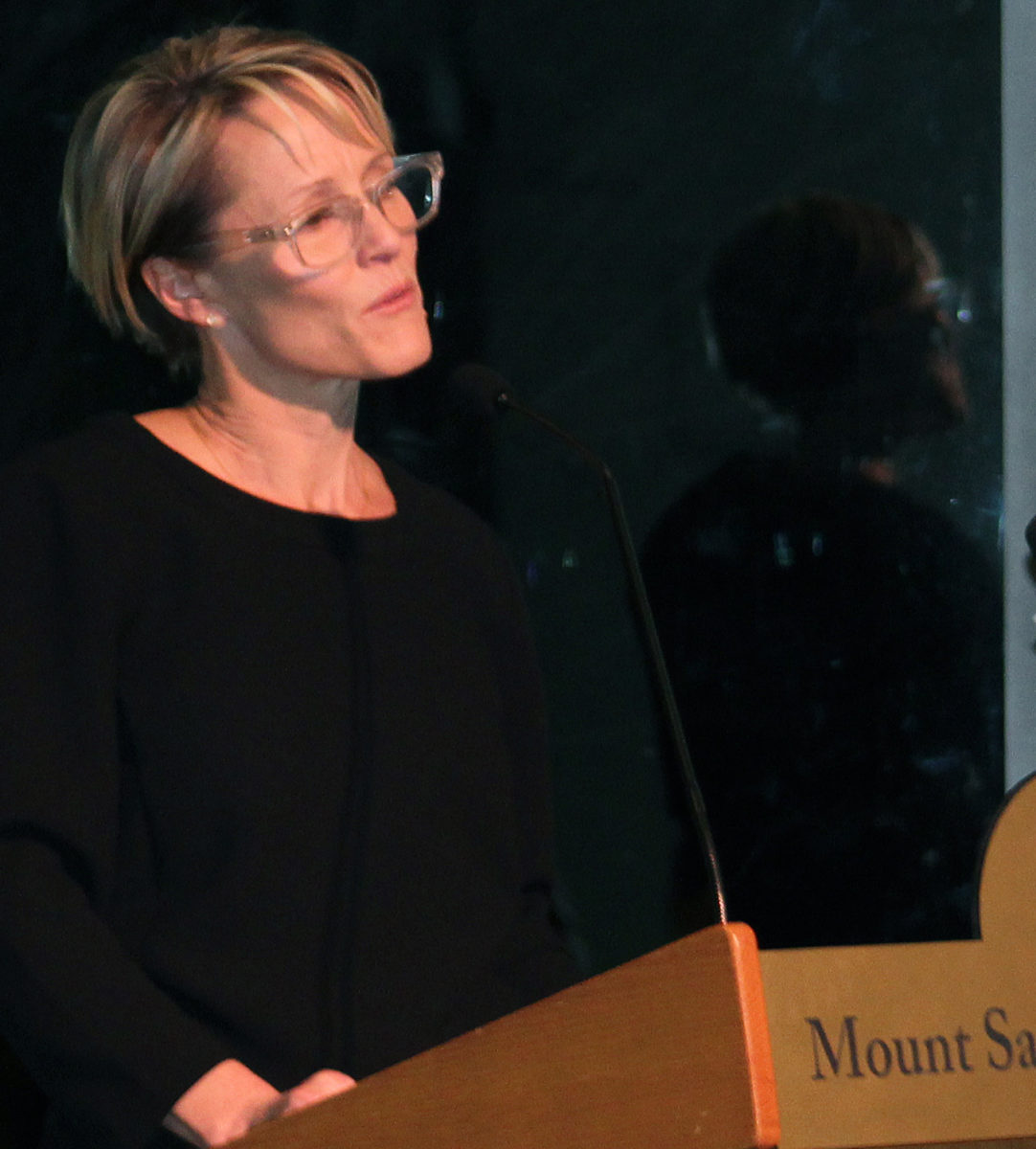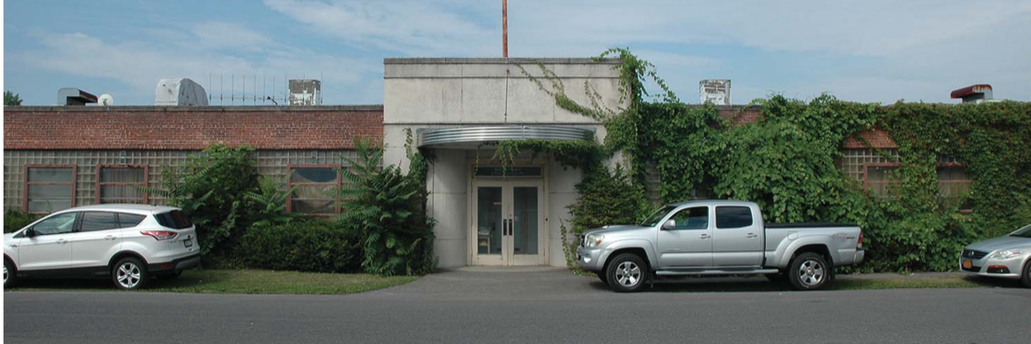For her vision of building the Hudson Valley into a national film hub, Mary Stuart Masterson has Georgia on her mind.
More specifically, the actress and director best known for starring in “Fried Green Tomatoes” and “Some Kind of Wonderful” wants to see how Georgia”™s rapid growth in film and television production can be replicated in New York. As the executive director and founder of the nonprofit Stockade Works, Masterson is helping to lead a project that would convert part of a Kingston warehouse into a film and television production studio.
 In a speech given Jan. 19 at the Upstate Venture Association of New York annual celebration in Newburgh, Masterson described the relatively small production economy in Georgia when she arrived there to film “Fried Green Tomatoes” in 1991. The film”™s staging had to be built and most of the crew came in from other states.
In a speech given Jan. 19 at the Upstate Venture Association of New York annual celebration in Newburgh, Masterson described the relatively small production economy in Georgia when she arrived there to film “Fried Green Tomatoes” in 1991. The film”™s staging had to be built and most of the crew came in from other states.
Today, Georgia has utilized tax incentives and an expanding workforce and facilities to become the third-largest television and production industry in the country, behind only New York and California. The industry in the state is worth well over a billion dollars.
“A single production can create an economic ripple effect that can be felt statewide, and Georgia is currently basking in its booming entertainment economy,” Masterson said.
Masterson, who moved from Brooklyn to the Hudson Valley in 2013, is now leading a nonprofit that seeks a similar production boom for her home region. She described Stockade Works as a group of professionals including actors, writers, directors, producers, creative directors, educators, advertising and communications directors, visual effects producers and program managers.
The nonprofit has teamed up with the Kingston housing and development nonprofit group, RUPCO, to plan a 45,000-square-foot center for film, television and tech production, post-production and training in Kingston. The studio would be built in part of a 75,000-square-foot warehouse now called “The Metro at 2 S. Prospect St. RUPCO is in contract to buy the building for $1.9 million.
 The rest of the space in the building would be used as small work areas for artists and entrepreneurs. The project is estimated to cost slightly under $12 million, according to Guy Kempe, vice president of community development for RUPCO. That money would come from a mix of state and local grants, tax credits, private funds and debt. The project has also been designated as a priority project by the Mid-Hudson Regional Economic Development Council and was selected as a signature project by the Kingston Downtown Revitalization Initiative.
The rest of the space in the building would be used as small work areas for artists and entrepreneurs. The project is estimated to cost slightly under $12 million, according to Guy Kempe, vice president of community development for RUPCO. That money would come from a mix of state and local grants, tax credits, private funds and debt. The project has also been designated as a priority project by the Mid-Hudson Regional Economic Development Council and was selected as a signature project by the Kingston Downtown Revitalization Initiative.
Kempe was introduced to Masterson through mutual friends and said their missions aligned with RUPCO”™s goal of creative place-making in Kingston. He said RUPCO had already been eyeing the building for development.
“They were pretty clear that they wanted to be in the city, in the urban fabric here. They were very clear that they had a vision that aligned with what we were talking about,” Kempe said. “So taking them to visit this essentially vacant factory was sort of a no-brainer.”
The building was built in 1947 by the Pilgrim furniture company, which downsized four years later and left the operation. The space was later used by MetLife Insurance for record storage. MetLife left in 2000. RUPCO has applied to the National Park Service to have the building listed on the national register of historic places. The rectangular brick building, according to RUPCO”™s application, represents an “example of the U.S. government”™s role in managing the transition of the national economy back to peacetime production” following World War II. Its construction required federal approval and was hampered by nationwide material shortages.
The building is in a part of the city now designated as the Midtown Arts District. In the same district, RUPCO and The Metro”™s architect Scott Dutton have already collaborated on the Lace Mill, which converted an abandoned, century-old factory into 55 affordable rental units that give priority to artists.
Stockade Works envisions the film and production center as a type of creative incubator. The center would offer workforce training in media production and facilities for long-term filming. Masterson laid out a vision that included event space, post-production suites, a finishing room and screening room, tenants who make beer, chocolate and coffee, tenants for a production company, a rental hub for grip, electric and camera equipment and sound stages.
“This isn”™t just a case of if you build it they will come,” Masterson said. “It is the combination of tax incentives, substantial expansion in scale and upgrading of facilities, education and, perhaps most importantly, access to the highest level of professionals in media today, where we will succeed and even beat Georgia at its own game.”
The project had two big wins in December and January. The first came when Gov. Andrew M. Cuomo signed legislation before the new year that extended a 40 percent tax credit for film productions to 12 additional counties, including Ulster, Dutchess and Orange. Productions in New York City qualify for a 30 percent tax credit, but the 40 percent had previously only been extended to productions in counties farther upstate.
Masterson said she worked with local officials, including Ulster County Executive Mike Hein, to push for Ulster to be included.
“The heads of productions and content companies will look at that 40 percent when they are deciding where to put TV shows,” Masterson said. “But they also need to know that there is a crew base they can rely upon and state-of-the-art facilities in which to shoot and store their sets.”
The second win involves getting those state-of-the-art facilities. In January, RUPCO and Stockade Works received a $1 million grant through the Consolidated Funding Application of the Empire State Development Office.
The project, however, still has a long way to go. Masterson said the group is still looking for funding. Plans have yet to be filed for the building”™s conversion. Kempe said construction isn’t likely to begin for another year as RUPCO is also still seeking funding.
But still, Masterson has little trouble painting a picture of what could be. She told the crowd gathered at Mount St. Mary College that the center could help drive a wave of film, production and tech jobs in the region, helping to replace jobs lost from former large employers such as IBM or even Macy’s and make the area a magnet for talent.
“We know this opportunity is way bigger than just Stockade Works,” Masterson said. “Stockade Works is in position to drive the opportunity, but it”™s not the whole story.”



















